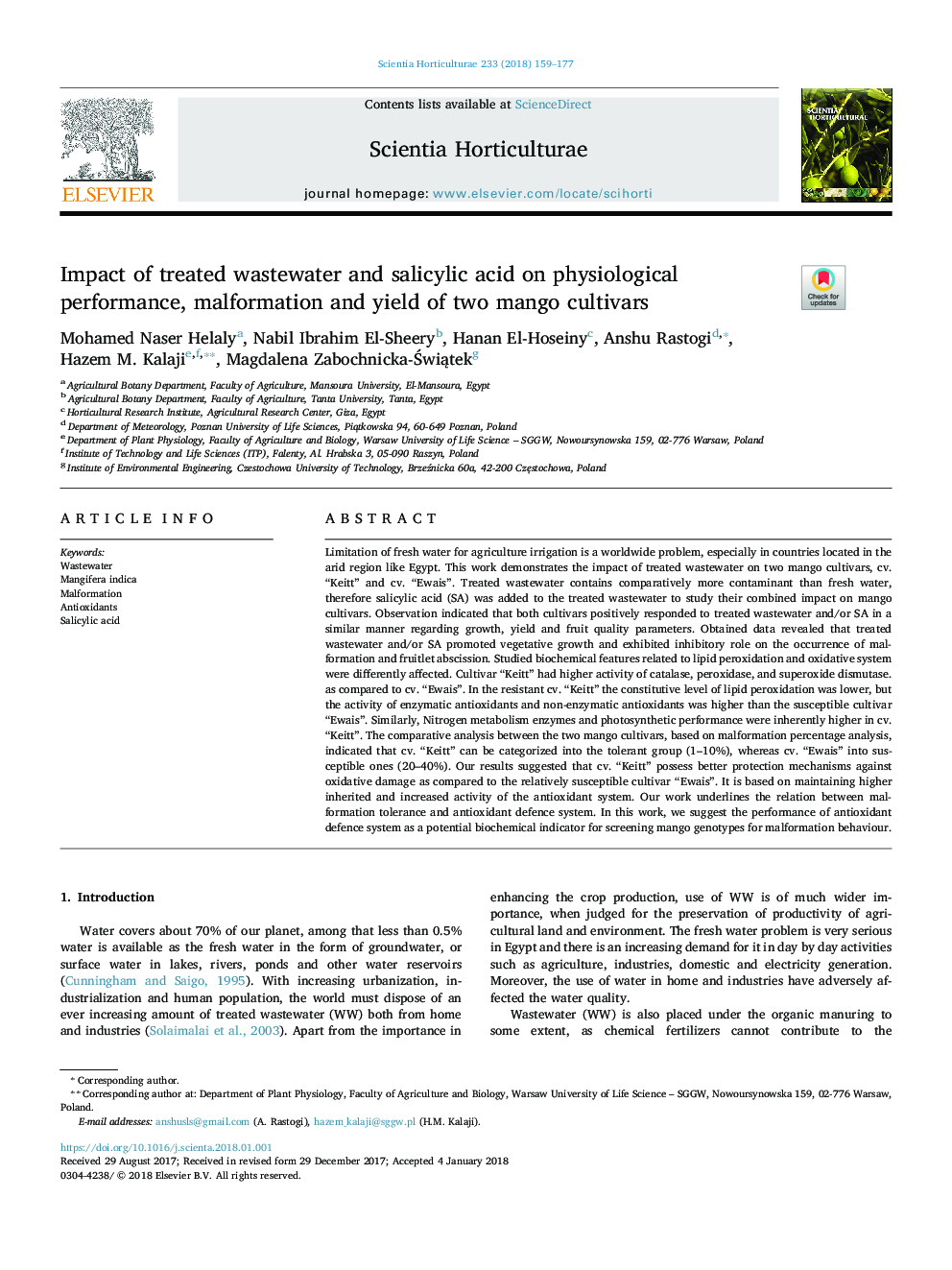| Article ID | Journal | Published Year | Pages | File Type |
|---|---|---|---|---|
| 8892854 | Scientia Horticulturae | 2018 | 19 Pages |
Abstract
Limitation of fresh water for agriculture irrigation is a worldwide problem, especially in countries located in the arid region like Egypt. This work demonstrates the impact of treated wastewater on two mango cultivars, cv. “Keitt” and cv. “Ewais”. Treated wastewater contains comparatively more contaminant than fresh water, therefore salicylic acid (SA) was added to the treated wastewater to study their combined impact on mango cultivars. Observation indicated that both cultivars positively responded to treated wastewater and/or SA in a similar manner regarding growth, yield and fruit quality parameters. Obtained data revealed that treated wastewater and/or SA promoted vegetative growth and exhibited inhibitory role on the occurrence of malformation and fruitlet abscission. Studied biochemical features related to lipid peroxidation and oxidative system were differently affected. Cultivar “Keitt” had higher activity of catalase, peroxidase, and superoxide dismutase. as compared to cv. “Ewais”. In the resistant cv. “Keitt” the constitutive level of lipid peroxidation was lower, but the activity of enzymatic antioxidants and non-enzymatic antioxidants was higher than the susceptible cultivar “Ewais”. Similarly, Nitrogen metabolism enzymes and photosynthetic performance were inherently higher in cv. “Keitt”. The comparative analysis between the two mango cultivars, based on malformation percentage analysis, indicated that cv. “Keitt” can be categorized into the tolerant group (1-10%), whereas cv. “Ewais” into susceptible ones (20-40%). Our results suggested that cv. “Keitt” possess better protection mechanisms against oxidative damage as compared to the relatively susceptible cultivar “Ewais”. It is based on maintaining higher inherited and increased activity of the antioxidant system. Our work underlines the relation between malformation tolerance and antioxidant defence system. In this work, we suggest the performance of antioxidant defence system as a potential biochemical indicator for screening mango genotypes for malformation behaviour.
Related Topics
Life Sciences
Agricultural and Biological Sciences
Horticulture
Authors
Mohamed Naser Helaly, Nabil Ibrahim El-Sheery, Hanan El-Hoseiny, Anshu Rastogi, Hazem M. Kalaji, Magdalena Zabochnicka-ÅwiÄ
tek,
